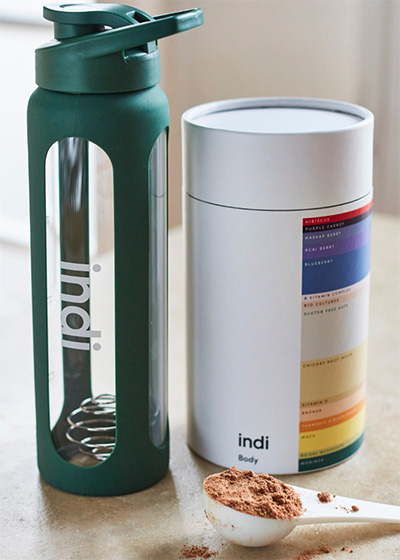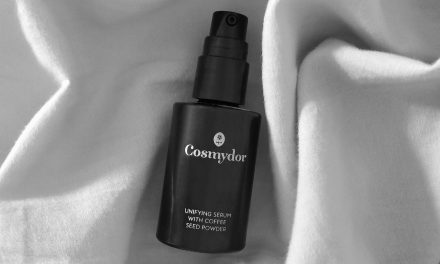7 surprising ways to optimise your health, according to a Nutrition Scientist
We speak to Nutrition Scientist Dr Federica Amati about debunking myths around diets and 7 suprising ways to optimise your health through a ‘Mediterranean diet’.
Have you heard of nutrition personalisation? As we’re heading into the future of wellness, having an approach that is mindful of the individual needs and predisposition of your body is key. What works for you might be detrimental for someone else, and how your body reacts to certain foods is often unpredictable. Figuring out what’s best for you can be tricky but it’s not impossible. We had the pleasure of talking to Dr Federica Amati, a powerhouse of evidence-based knowledge and information. To her, the future of healthcare is personalisation. From personalised medicines in treating cancers, to knowing exactly which foods have a positive impact on our health, we now know that the same food can elicit entirely different responses, even in identical twins.
Dr Amati holds a PhD in Clinical Medicine Research from Imperial College London and is a registered Nutritionist with the Association for Nutrition. She focuses on following the principles of a personalised Mediterranean Diet approach to optimise microbiome balance and harness long-term benefits. She is also actively involved in nutrition, physical activity and mental wellbeing research at Imperial College London. As well as cardiometabolic health and COVID-19 and nutrition research with NNedPro, a global think tank founded at Cambridge University. Alongside her research and private client consultations, she works as Chief Nutrition Scientist for our favourite Indi Supplements. We asked her to debunk the biggest nutrition and diet myths and to give us some expert tips on how to optimise your health with the number one medicine: food!
Probiotics alone are not helpful
We know that gut health is key to overall health, and there are a myriad of probiotics on the market aimed at improving this. To get the most benefit from these helpful bacteria though, we need prebiotic fibre as food for them to survive in our gut and release beneficial postbiotic chemicals. Fibre is a key component to our diet, and the more research is conducted, the more important this message becomes. It is crucial for gut health and getting enough of it during our lifetime is linked to lowering risk of premature death, cancer, type 2 diabetes and anxiety disorders to name but a few. Unfortunately, the majority of us struggle to get to even half of the recommended daily portion of 25g-38g per day. Enhancing our regular dietary fibre intake with a good quality food enhancing and fibre rich supplement powder, like Indi Body, can help us achieve this.
What are the sources of prebiotic fibre?
There are several types of prebiotic fibres that come from our food: beta-glucans found in oats, barley and mushrooms, oligosaccharides such as FOS (fructooligosaccharides) and inulin found in onions, chicory and garlic, and GOS (galactooligosaccharides) found in chickpeas and cashews. The dietary prebiotics most extensively studied to be good for our health are the non-digestible oligosaccharides fructans and galactans found in plants: vegetables, fruits, whole grains and nuts.
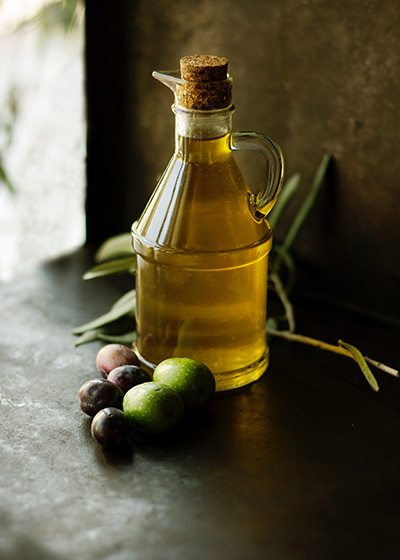
Enjoy extra Virgin Olive Oil every day
Research around the health benefits which come from daily consumption of EVOO is overwhelming. We now understand more about the pathways through which EVOO acts as an antioxidant and improves inflammation, strengthening the case for ensuring we consume high quality EVOO every day. Drizzle on your salads, pastas, fish and meat dishes but make sure it’s the extra virgin kind and not the blended ‘olive oils’ that don’t retain any of the nutritional benefits.
How much olive oil is too much olive oil?
It’s hard to have too much EVOO in our diet and there are no studies reporting ‘excessive’ consumption but it is a naturally high calorie food so the key is to drizzle and not drown our food with it. If you’re having more than is enjoyable to taste, it’s probably too much.
Do you work in sustainability?
The WIP is our new digital platform for eco aware brand founders, entrepreneurs and side hustlers. It's a place to find community as well as learning resources. Launching this Winter, you can sign up for updates below.
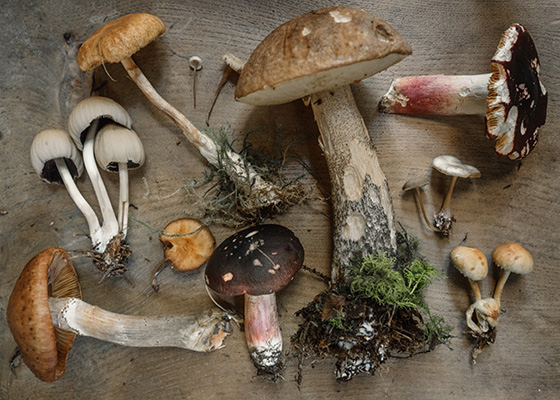
Use nature’s own pharmacy through whole plants
We all know that food is made up of complex chemical structures. These interact with one another as well as with our gut microbes and our cells. Polyphenols in dark plants and fruits such as cavolo nero and haskap berries counteract oxidative stress, and inulin from chicory root is proven to support lipid metabolism and a healthy microbiome profile. Eating a combination of these foods every day helps support our body’s immune and anti-inflammatory functions for a long and healthy life.
Don’t stick to the same meals every day
Preparing the same meal for lunch every day is not likely to help us achieve the ideal number of diverse plants we need to eat every week. Research suggests we should be aiming for 30 types per week, from spices to nuts and seeds and seasonal vegetables. The key to variety is meals that offer different combinations of nutrients, minerals and flavours every time. So ditch the repetitive meal plans and get creative with dried spices, seeds, nuts, whole grains, EVOO, occasional high quality animal products, and lots of seasonal vegetables for a broad range of benefits.
What are the biggest nutrition myths?
There are new ones all the time and it’s hard to choose. Tim Spector’s books ‘The Diet Myth’ and ‘Spoon Fed’ address some of the biggest ones but my top selection would be:
- Where food comes from doesn’t matter – Not knowing where our food comes from has huge implications for impact on our health. Consuming organic foods vastly reduces our exposure to compounds such as glyphosate that we know have impacts on our health. Consuming grass fed beef or organic eggs from outdoor reared chickens completely changes the composition of the foods. Additives like sugar alcohols and emulsifiers, and processing in UPFs all impact our microbiome.
- Food elimination diets lead to a healthy relationship with food and a healthy stable weight – Keto diet, caveman diet, Atkins diet, raw food diet: these will almost inevitably cause an initial weight loss followed by unsustainable restrictions leading to weight gain once normal eating resumes.
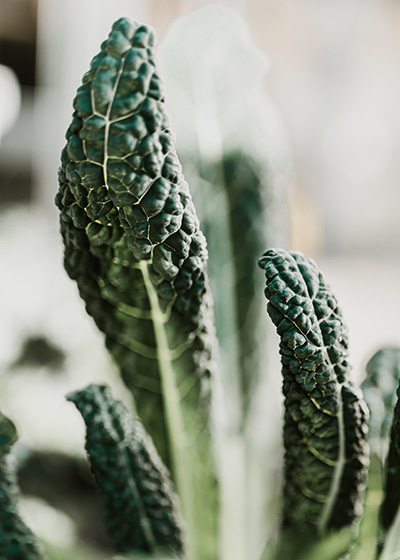
- Carbohydrates are bad – The amount of good quality evidence that now exists to support high carbohydrates diets as good for us is extensive. Ultra processed foods (UPFs) are bad; pre-packaged pastries and cakes and cookies, but carbohydrates include whole grains, fruits, vegetables and legumes which are all actually really good for us and our microbiomes.
- Juices can help us detox – Possibly one of my pet peeves is this idea that we need to do something drastic like not eat or just drink juices for a few ideas to help our bodies ‘detox’. Our bodies are constantly detoxing all the time thanks to clever homeostatic processes and the best way to support that is with consistent, nutritious foods, plenty of water and giving our bodies the time it needs to do their jobs whilst we sleep by not eating for 12-14 hours windows every day.
- One person’s individual journey can be used as evidence to propagate trends such as ‘gluten free’ or ‘reducing leaky gut’ – There are medical conditions that require diagnosis and treatment such as Coeliac’s disease but just cutting out an entire food group to address feeling sluggish is not a good idea. Doing so because a social media influencer suggested it is definitely not a good idea and will likely lead to increased UPFs to try and eliminate a whole food source.
- To lose weight you just need to eat less calories – Of course, being in a calorie deficit will initially result in some weight loss, but our bodies adapt to try and maintain what is known as homeostatic body weight regulation and simply counting calories will not address this. No calorie controlled diets have ever worked in the long term. Our genes and microbiome have a huge impact on how we individually metabolise and absorb foods. Nutrition needs to be approached on an individual level to achieve overall health and there are companies such as ZOE actively working towards making personalised nutrition available.
How to combine having a diverse range of ingredients and meals and a busy schedule?
Build your meals starting with plenty colourful vegetables: greens (rocket,broccoli), reds (peppers, cooked tomatoes), purples (beetroot, red cabbage); then add your legumes and beans. Whole grains like bulgur wheat, quinoa or wild rice are essential and use spices to increase your plant fibre and polyphenol intake from basil to oregano, thyme and turmeric. Include fermented probiotic foods like kimchi or labneh and add a handful of mixed nuts and seeds. Finally add a sustainable amount of fish or meat product like egg, mussels, small fish (anchovies) or very occasionally meat. It’s all about the quality not quantity when it comes to animals. By using this additive approach, meals can be rich and colourful, nutritious and sustainable, and work well as cold or hot meals at home or in a packed lunch.
What are signs that certain foods are not good for you?
Listening to your body is the best way to understand more about what works for you. Signs to look out for include bloating, constipation, diarrhoea and sudden sleepiness. However things like eczema flare ups, acne and migraines are also signs. Vomiting, rashes/hives and severe diarrhoea should always be discussed with your doctor. Remember that our mental health and our nutrition go hand in hand, so correlating food with mood is important and understanding what we eat when we feel good will often be what makes us feel good when we eat it too!
Did This Put A Smile On Your Face? Why Not Subscribe?
If you enjoyed this then theres plenty more on our email newsletters that you'll love. Whether you're a sustainable newbie or an eco conscious pro, our bi monthly emails will inspire you to live sustainably and ethically.
Disclaimer: The people and models in the images featured are not associated with The Vendeur and do not endorse it or the products shown. This post may contain affiliate links. Prices correct at time of publishing.



